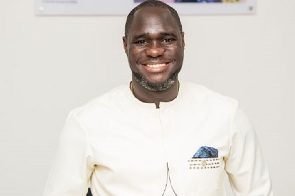Accra, Feb. 15, GNA - The Ministry of Women and Children Affairs (MOWAC) on Tuesday launched an Action Plan to reposition itself to deliver on its mandate.
The three-year action plan follows an institutional assessment re-engineering of the Ministry which is expected to lead in the achievement of gender equality and empowerment of women's survival, development, chil= d participation as well as the protection of rights of women and children. The launch was on the theme: 93Enhancing Gender Equality and the Righ= ts of Women and Children."
It aimed at facilitating the implementation of the recommendation and findings of the institutional assessment and enhance the institutional capacity and image of MOWAC.
The plan proposes a structured and systematic monitoring and evaluatio= n system that would provide real-time findings which would allow for a swift change to be incorporated in MOWAC's activities. Ms Hannah Tetteh, Minister of Trade and Industry said some key issues identified from the institutional assessment was the need for the review of existing policy response to MOWAC's mandate.
She said inadequate resources base to support the ministry formed the basis for the formulation of the action plan.
She noted that recommendation from the assessment revealed that MOWAC could benefit significantly from enhanced collaboration and networking with development partners and the private sector. Ms Tetteh said MOWAC with its Cabinet status had been able to initiate and push through critical policies on issues affecting women and children notably the Domestic Violence and Child Trafficking Acts. "Inputs into the document are expected to adequately ensure that all gaps and inequalities are properly adhered to," she added. She pointed out that implementation of a gender responsive budget was key to ensure that budgetary allocation were made for gender work. Ms Tetteh appealed to government, development partners, civil society organisations and other stakeholders, to translate their commitments into concrete technical and financial support towards the achievements of the plan.
Mrs Juliana Azumah-Mensah, Minister of MOWAC said a critical aspect of promoting gender equality was the empowerment of women with a focus on identifying and re-addressing power imbalances and providing women more autonomy to manage their own lives.
"Equality between men and women exist when sexes are able to share equally in the distribution of power and influences; enjoying equal access to education and the opportunity to develop personal ambitions," she stat= ed.
Mrs Azumah-Mensah explained that despite the many international treaties, protocols and conventions that Ghana was a signatory to, women were more likely to be poor and illiterate than men and usually had less access than men to medical care, property ownership, credit, training and employment.
She said Ghana was a signatory to the Convention on the Elimination of all forms of Discrimination Against Women and the International Convention on Economic, Social and Cultural Rights.
She said a lot more needed to be done by the Ministry, partners and stakeholders to achieve the equality and equity that the country required. Mr G. K. Kumor, Acting Chief Director of MOWAC said the Ministry took a bold step in 2009 to undertake a self=96institutional assessment and based on the findings and recommendations, a three-year action plan was developed to address key issues identified. The action plan he said had indicative costs which would assist government, development partners and corporate bodies to make firm commitments to MOWAC on technical and financial support. Mr Kumor said as part of the implementation process, a risk management plan would be developed to mitigate any risks associated with the assumptions in the action plan.
Mrs Ruby Sandhu-Rojon, UN Resident Co-ordinator, in a speech read on her behalf noted that since 2000, government had re-affirmed the centrality of gender equality to poverty reduction and development. In addition, government had agreed that advancements made on gender equality and women empowerment was a goal in itself and central to achievin= g all other Millennium Development Goals, including reproductive health and rights.
Mrs Sandhu-Rojon noted that reproductive ill-health continued to account for nearly one-sixth of the worldwide burden of illness and premature death, and the poverty trap confronting women and girls was increasing their vulnerability and undermining their health and human rights. This, she said called for bridging the gap between policy and implementation for marginalised populations, majority of whom were girls an= d women.
"As we explore areas of support to MOWAC to enable the full implementation of the re-engineering action plan, let us acknowledge the existence of the teeming numbers of women and girls who will benefit from the initiative," she added. Mrs Sandhu-Rojon said strengthening of institutional mechanisms such a= s MOWAC and other key public organisation and institutions could not be over-looked. "MOWAC needs the right skills, competences and systems to be able to realise objectives of the Action Plan and we all have a responsibility to support them," she added. Representatives of development partners lauded the bold initiative taken by MOWAC and noted that it was a step in the right direction but cautioned that the plan should not be left on the shelves. 15 Feb. 11
--001636c5b4d8098a81049c5978bd
General News of Tuesday, 15 February 2011
Source: GNA
















